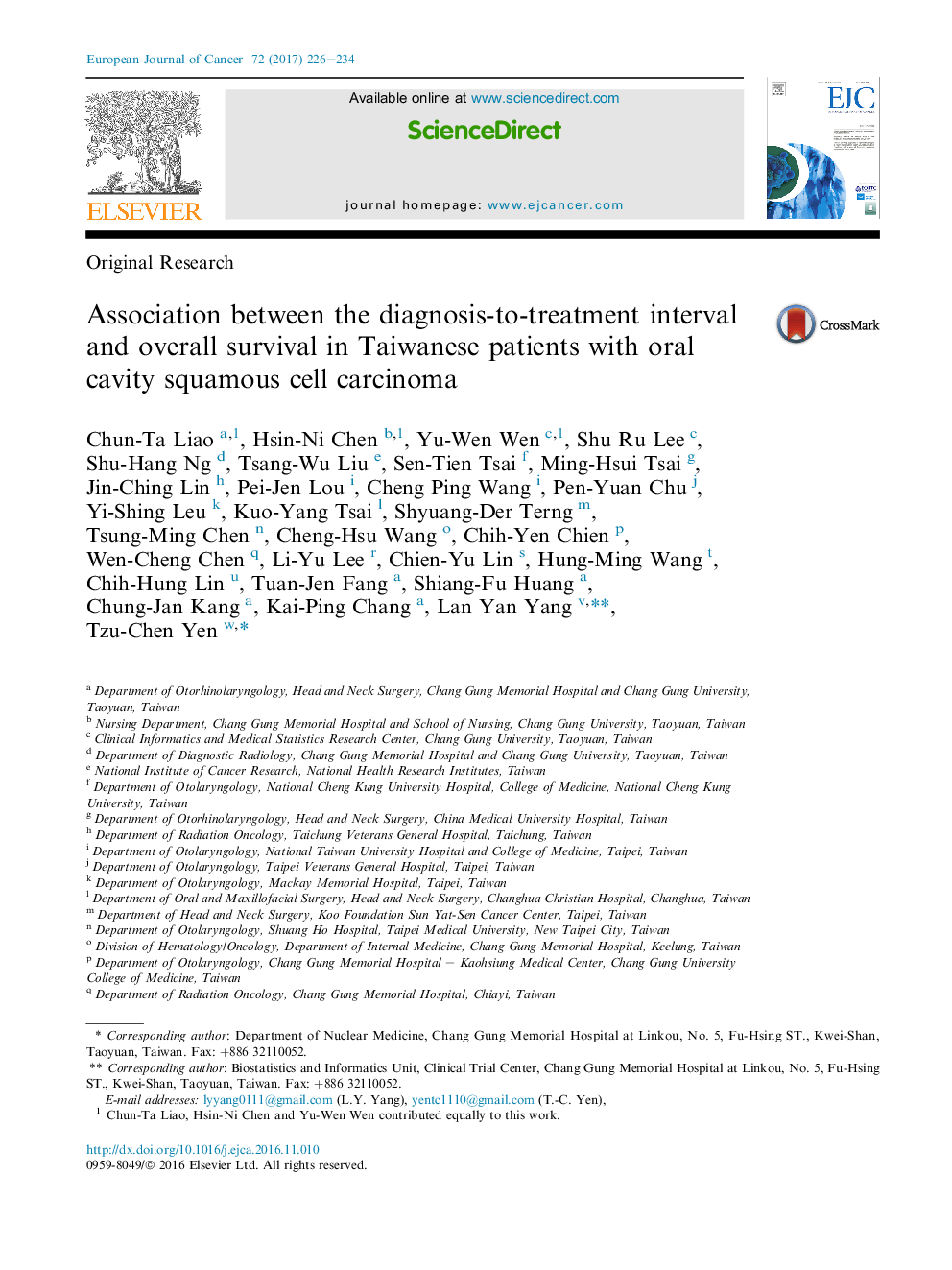| Article ID | Journal | Published Year | Pages | File Type |
|---|---|---|---|---|
| 5526317 | European Journal of Cancer | 2017 | 9 Pages |
â¢It is still unclear whether delayed treatment can negatively affect survival in oral cavity squamous cell carcinoma.â¢A prolonged diagnosis-to-treatment interval (DTI) was an adverse prognostic factor.â¢A DTI longer than 20-30 days may potentially decrease overall survival.
BackgroundTo investigate the association between the diagnosis-to-treatment interval (DTI) and overall survival (OS) in patients with oral cavity squamous cell carcinoma (OSCC).MethodsA total of 18,677 patients with first primary OSCC identified in the Taiwanese Cancer Registry Database between 2004 and 2010 were examined. The effect of DTI on 5-year OS rates was investigated with multivariate Cox regression analysis. After the identification of the optimal cutoff for DTI based on the 5-year OS rates, DTI was classified in the following 20-day groups: â¤20 days (57% of the study patients), 21-45 days (34%), 46-90 days (6%) and â¥91 days (3%). In additional exploratory analyses, DTI was reclassified in the following 30-day interval groups: â¤30 days (81% of the study patients), 31-60 days (14%), 61-90 days (2%) and â¥91 days (3%).ResultsMultivariate analyses identified DTI (â¤20 days versus other subgroups), sex (female versus male), age (<65 versus â¥65 years), clinical stage (p-stage I versus p-stage II, III, IV) and treatment modality (initial surgery versus initial non-surgery) as independent prognostic factors for 5-year OS. Compared with a DTI â¤20 days, the DTI categories â¥91 days (hazard ratio [HR]: 1.28, P < 0.001), 46-90 days (HR: 1.25, P < 0.001) and 21-45 days (HR: 1.07, P = 0.007) were independently associated with a higher risk of 5-year mortality. Similar results were obtained for DTI â¤30 days groups.ConclusionsDTI is independently associated with 5-year OS in OSCC patients. A DTI longer than 30 days or even 20 days may potentially decrease survival.
